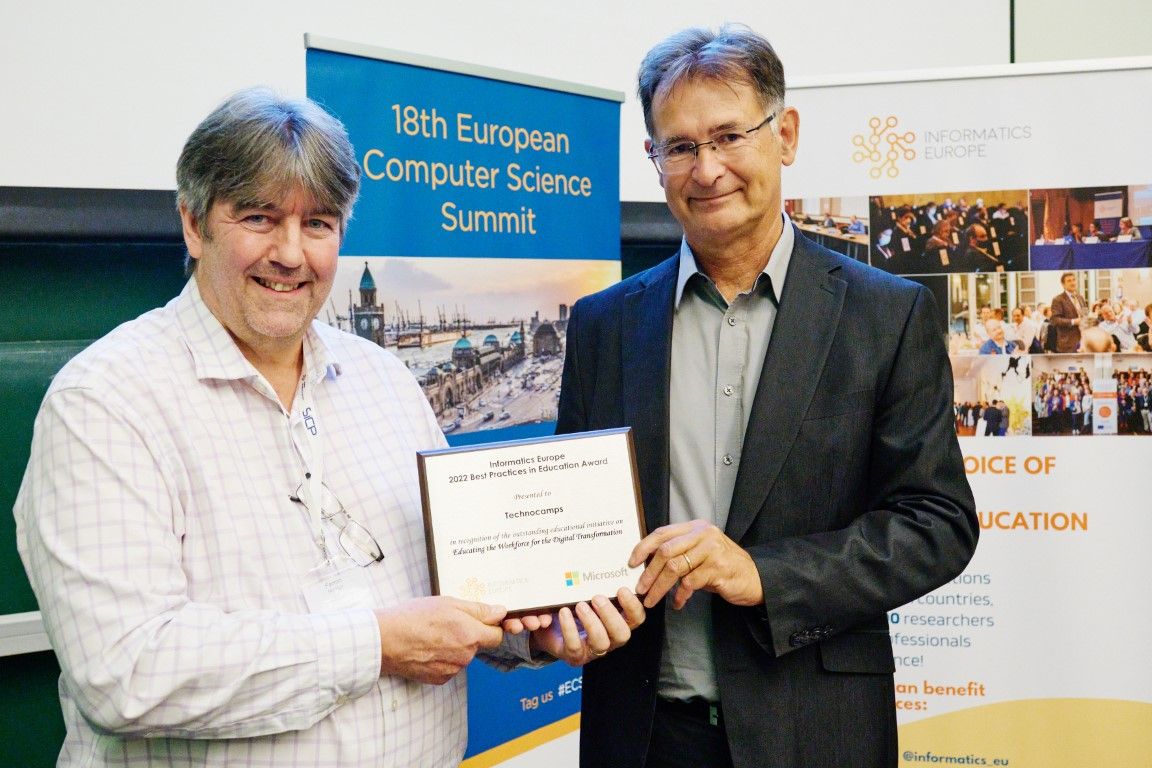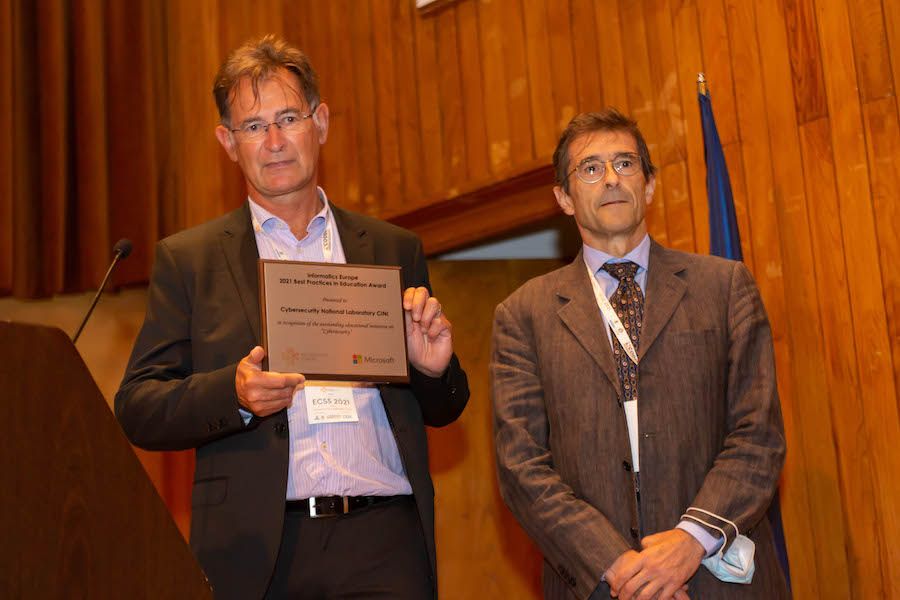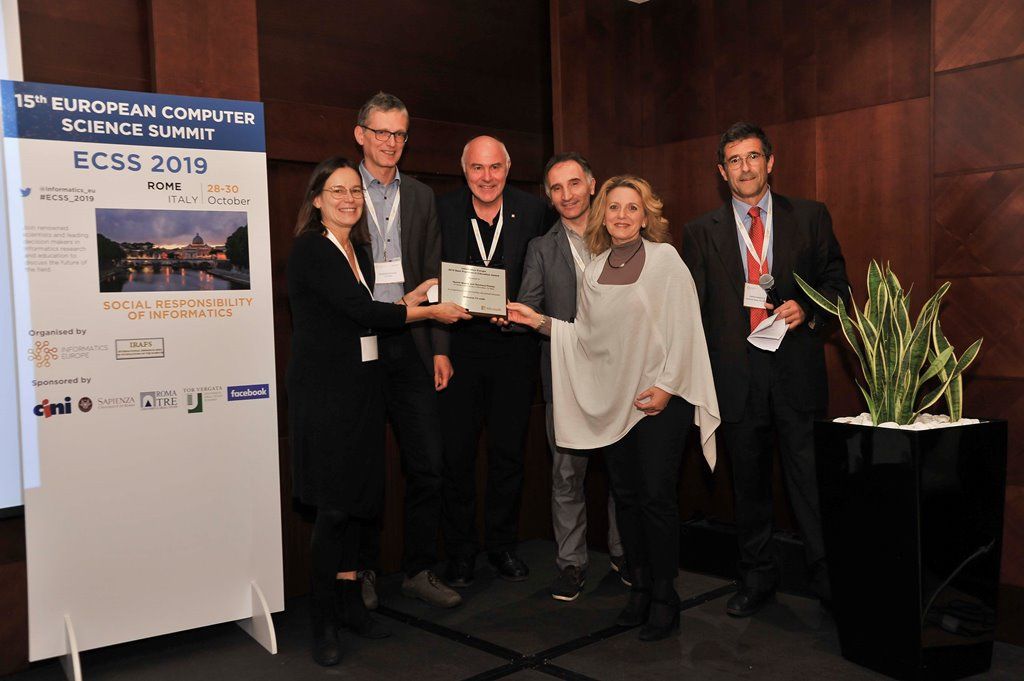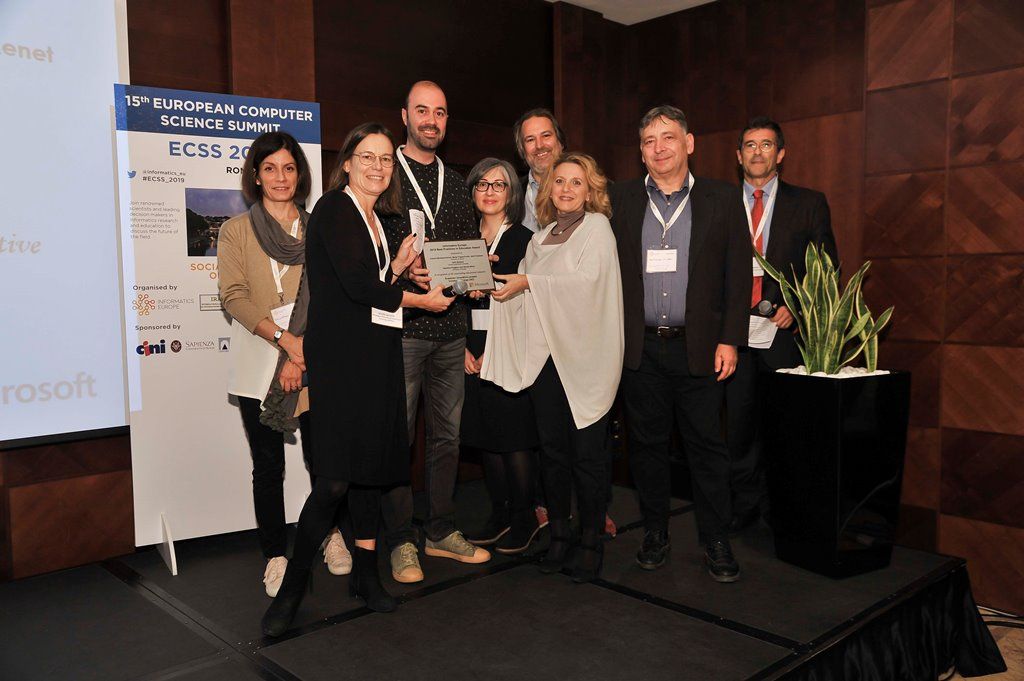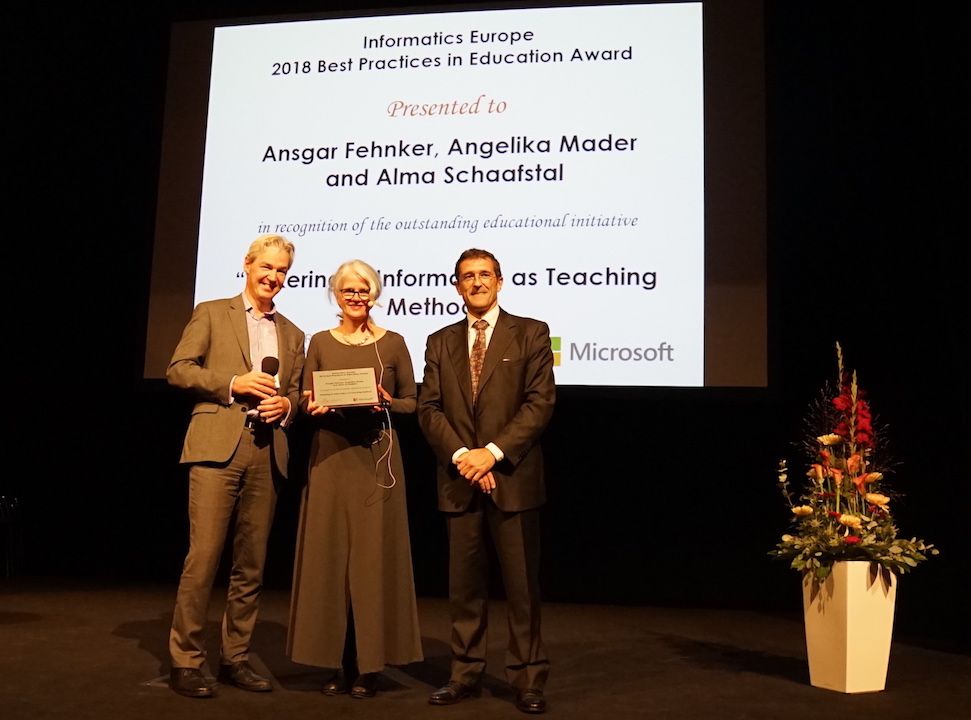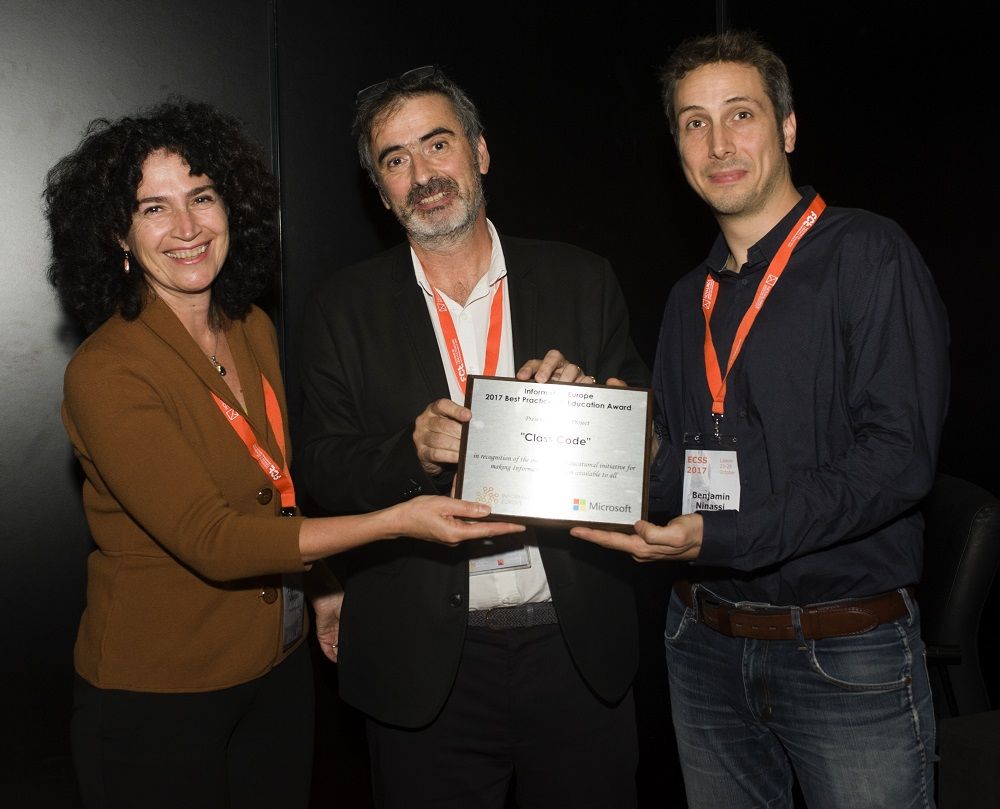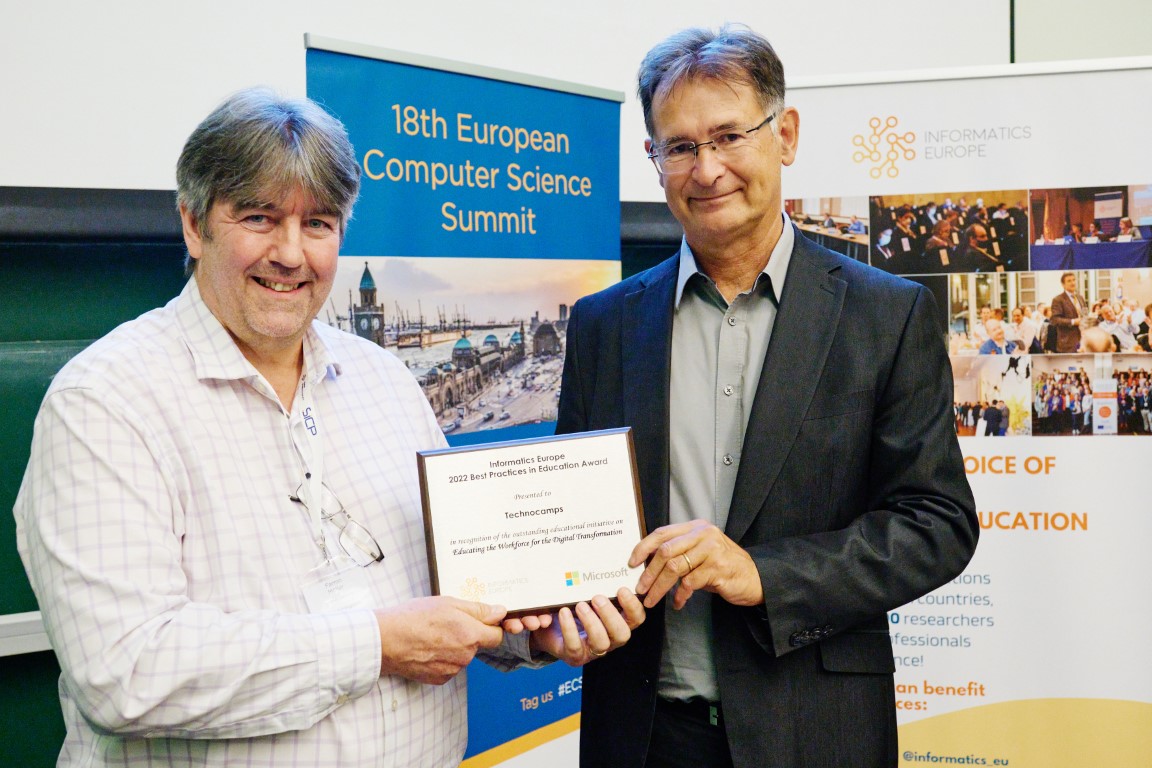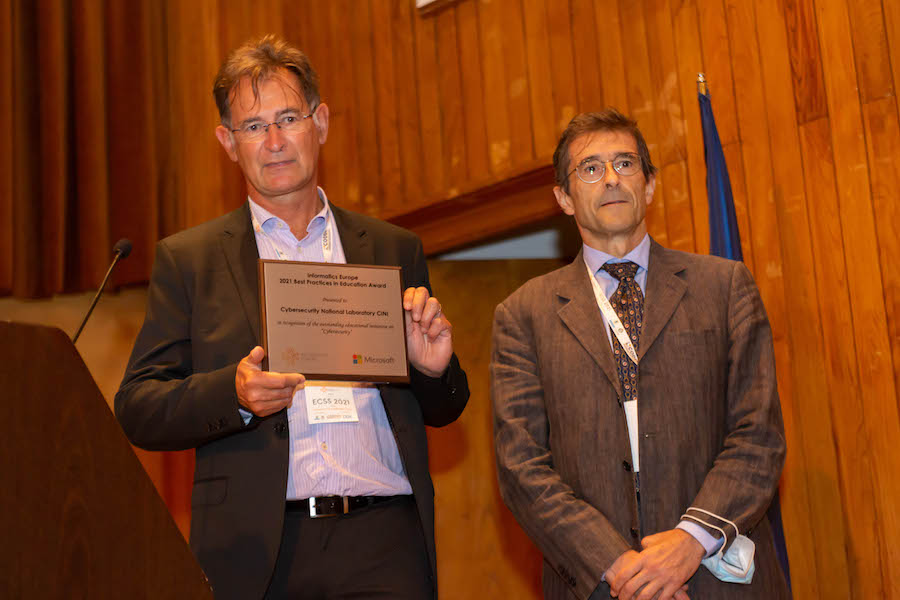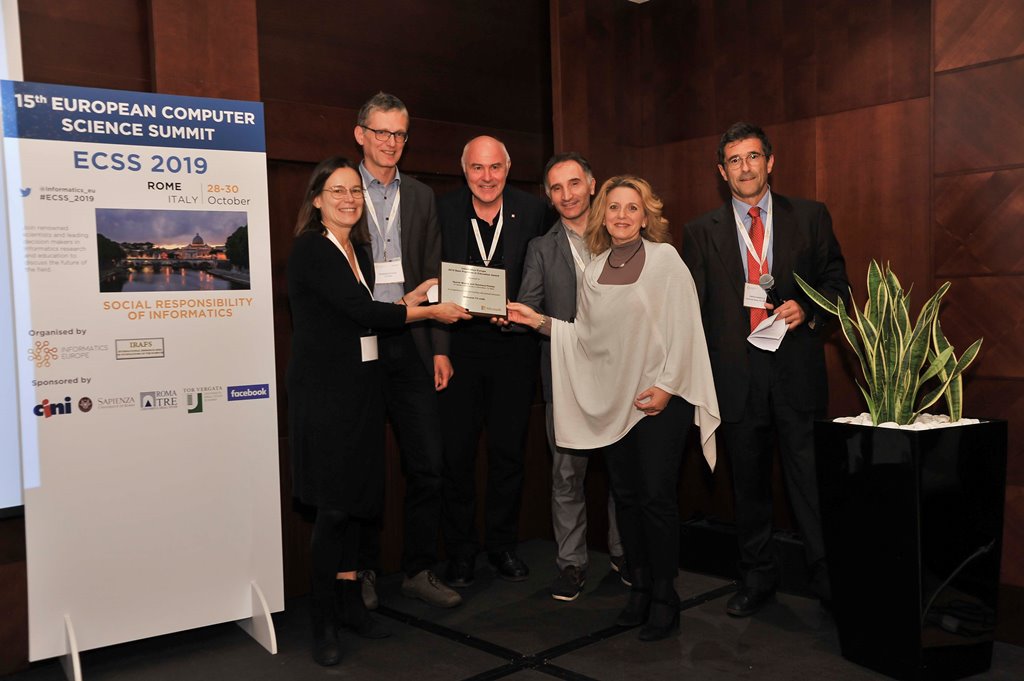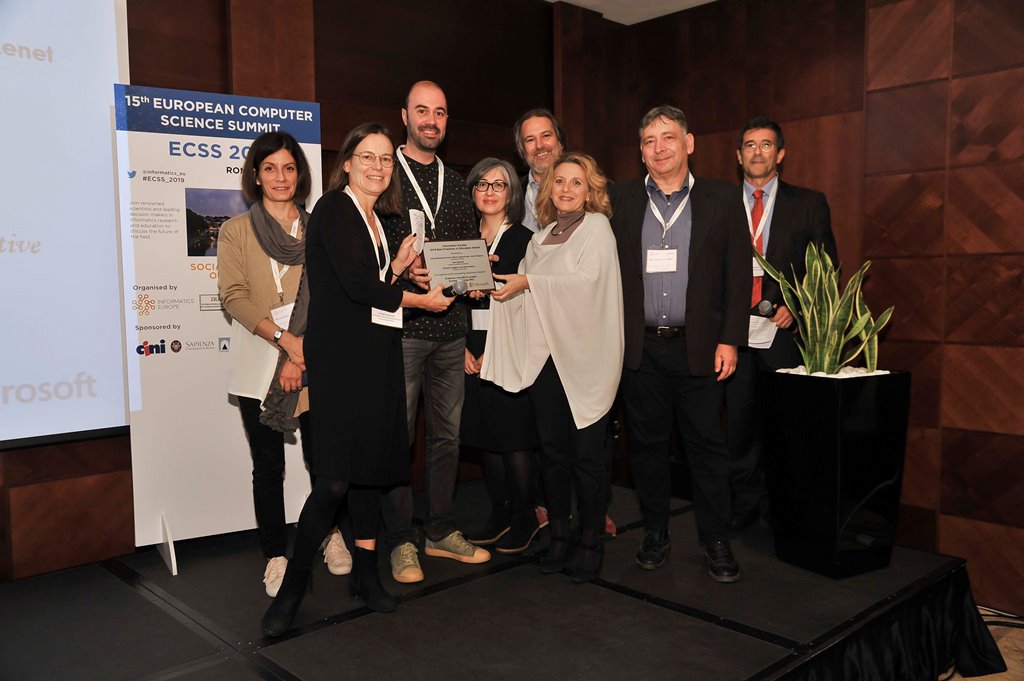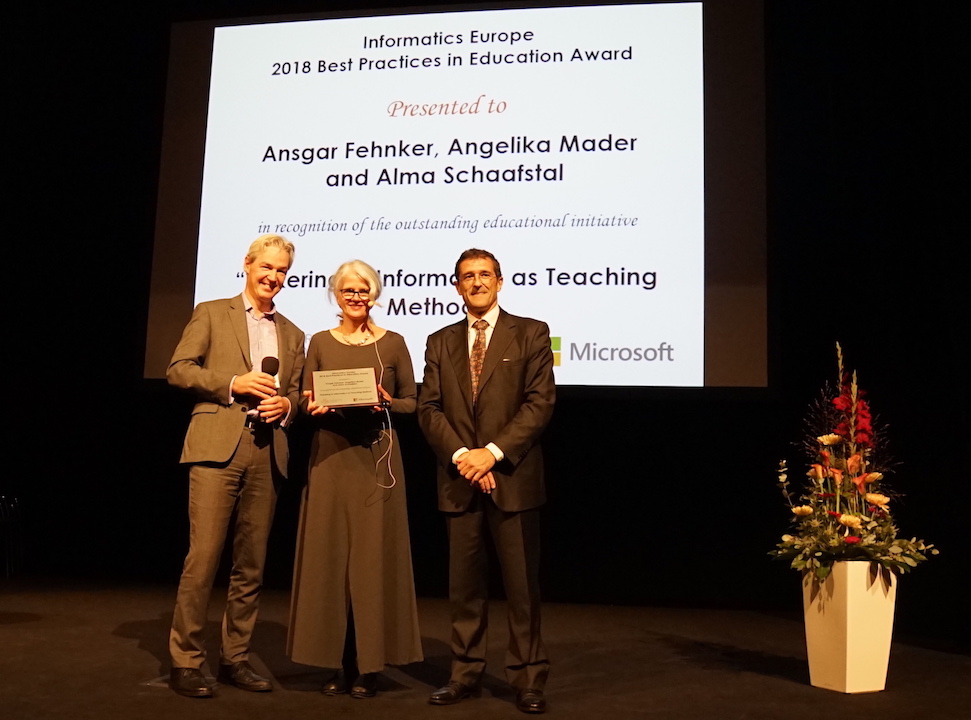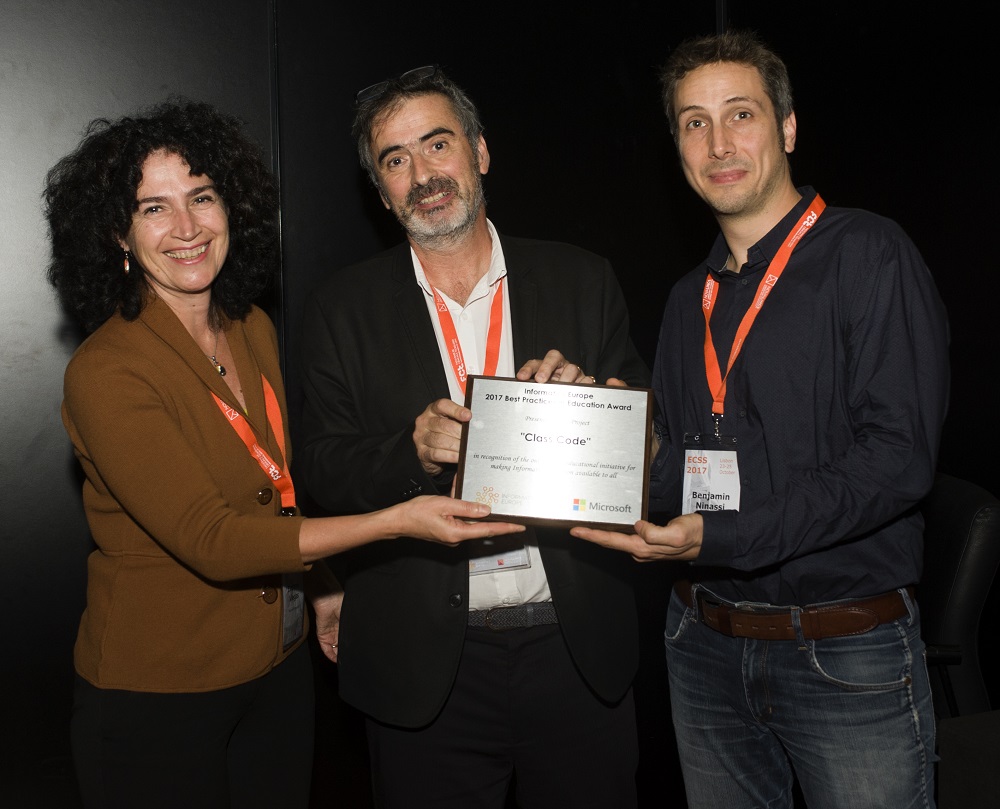2017 Best Practices in Education Award
Informatics Europe proudly announces its 2017 Best Practices in Education Award devoted to initiatives making Informatics education available to all.

The Informatics Europe Best Practices in Education Award recognizes outstanding European educational initiatives that improve the quality of informatics teaching and the attractiveness of the discipline, and can be applied and extended beyond their institutions of origin.
The Award will reward a successful teaching/dissemination effort in Europe that:
- has made a measurable difference in Informatics education
- is widely applicable and useful for the teaching community
- has made a measurable impact in its original institution(s) and beyond
Examples of impact include course results, traditional and online courses, learners’ projects, textbooks, professional development, and influence on the curriculum of other institutions/countries.
The 2017 Award is devoted to curriculum and professional development initiatives for making Informatics education available to all, The Award will honour original contributions that emphasize successful initiatives for teaching of informatics fundamentals in one of the following areas:
- Reaching out to non-traditional audiences, e.g., in continuing professional development or to senior citizens.
- Educating the general public, e.g., with respect to data security and privacy.
- Including Informatics education in other curricula, e.g., in general teacher training.
Experiences and reports showing how to use software or hardware tools in order to improve learning in other disciplines than Informatics will not be considered.
The Award is sponsored by Microsoft and carries a prize of EUR 5,000.
The Award can be given to an individual or to a group. To be eligible, participants must be located in one of the member or candidate member countries of the Council of Europe (www.coe.int), or Israel. Members of the Informatics Europe Board and of the Award Committee are not eligible.
The Award Committee will review and evaluate each proposal. It reserves the right to split the prize between at most two different proposals (individuals or teams).
The proposal should include:
- Names and addresses of the applicant or applicants;
- Indication of whether the submission is on behalf of an individual or a group;
- Description of the achievements (max 5 pages);
- Evidence of availability of the curricula materials to the teaching community (max 2 pages);
- Evidence of impact (max 5 pages);
- A reference list (which may include URLs of supporting material);
- One or two letters of support. The letters of support may come for example from school or university management, associations, or colleagues in the same or another institution.
Deadlines:
- Proposal: June 1, 2017
- Notification of winner(s): August 1, 2017
The Award will be presented at the 13th European Computer Science Summit, in Lisbon, 23-25 October 2017, where the winner or winners (one representative in the case of an institution) will be invited to give a talk on their achievements.
Award Committee:
- Jan Vahrenhold, Westfälische Wilhelms-Universität Münster (Chair)
- Mordechai Ben-Ari, Weizmann Institute of Science
- Michael E. Caspersen, Aarhus University
- Kathi Fisler, Brown University
- Lisa Kaczmarczyk, Lisa Kaczmarczyk PhD Consulting LLC
- Aiko Pras, University of Twente
Further inquiries:
This email address is being protected from spambots. You need JavaScript enabled to view it.







